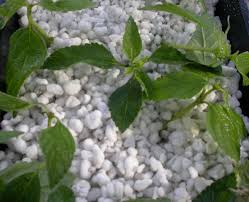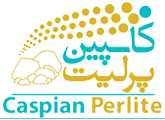container growing
Perlite, container growing with 100% Perlite and Perlite/ peat mixes

As the greening of the world continues, there is an ongoing trend to utilize container plantings. Not only are these containers used in indoor and outdoor pedestrian malls, they are used in rooftop gardens over underground garages and shopping malls, on patios, decks, terraces and in penthouse gardens.
A problem common to all of these applications is weight. Structural design on the floor, deck, or rooftop is often the limiting factor in so far as container weight is concerned. This, in turn, limits the depth of growing mix that can be used which restricts the size of shrub or tree that can be planted.
Lightweight Perlite (100% Perlite) or Perlite/Peat Growing Mixes
Conventional, fully watered soil weighs as much as 1900-2200 kg/cubic meter. Therefore the soil in a 1,2 x1,2 m container, 1 m deep, and large enough for a small tree can weigh almost 3200 kg. When this is multiplied by the number of containers used, the additional weight on the structure can be enormous.
Fully watered Perlite/peat moss growing mixes weigh only about 550 kg/cubic meter, and 100% Perlite media weigh even less. Using the previous example, the same container filled with a Perlite/peat moss growing mix would weigh only about 770 kg – less than one ton! This tremendous weight saving with Perlite/peat moss mixes can provide architects, designers, and nurserymen with a host of additional options including more extensive plantings, larger shrubs and trees, and reduced design loadings for rooftops.

Plants grown in Israel in 100% Perlite.
Additional Advantages of 100% Perlite or Perlite/Peat Moss Growing Mixes
The advantages of 100% Perlite or Perlite/peat moss growing mixes are not limited to weight savings only. Horticultural Perlite is an inorganic mineral of volcanic origin. Thus, it does not rot or otherwise deteriorate but continues to function in the growing mix. In addition, because of its unique surface configuration, particles of horticultural Perlite will retain from three to four times their weight in water on the surface yet they will not become soggy. This is an important consideration with container plantings as this type of planting tends to dry our faster than plantings in the ground. This feature of Perlite will produce healthier plants and trees while requiring far less attention (and less water.)
This water holding ability of horticultural Perlite also increases its nutrient holding capacity when water-soluble fertilizers are used. In addition, horticultural Perlite provides aeration to the growing mix which is essential for optimum plant development.
A further advantage of using lightweight 100 % Perlite or Perlite/peat moss growing mixes in containers is that they are easier to move and relocate and they last longer because they are not subject to stresses and strains induced by heavy loadings.
Typical Container Growing Mixes
A common container growing mix could be either 100% fine Perlite, or 50% horticultural Perlite -50% coarse sphagnum peat moss (by volume) plus nutrients. This formulation will vary considerably however depending upon such factors as the type of plants to be grown, climatic conditions, and size of container. As a general rule it is recommended that at least 20% horticultural Perlite be employed in any container mix.
Container planting mixes also may utilize soil in conjunction with sphagnum peat moss, horticultural Perlite and nutrients.




